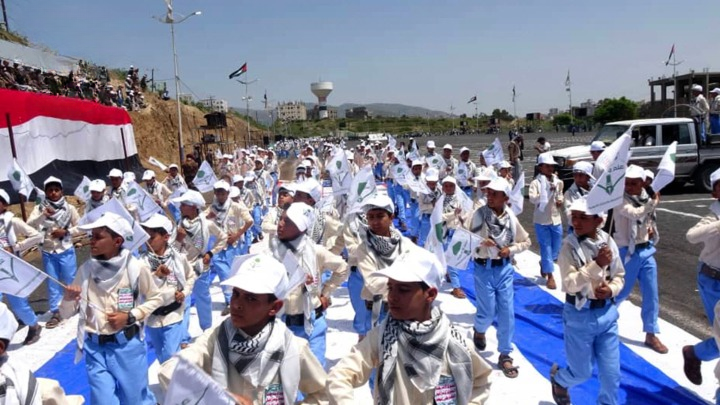Summer Courses and the Reinforcement of Faith and National Identity: The Role of Yemeni Society and Tribes in Fortifying the Nation’s Consciousness
In light of the sweeping transformations Yemen has undergone since the September 21, 2014 Revolution, summer courses and a range of educational and cultural activities have emerged as a strategic pillar for rebuilding the Yemeni individual on Qur’anic principles, while deepening their awareness of both national and Islamic causes—above all, the Palestinian issue.
Held annually across every governorate and district, these programs provide a dynamic educational space that nurtures the next generation’s consciousness and shields it from the soft-power campaigns aimed at dismantling values and eroding identity. A hallmark of these initiatives is the widespread popular engagement they attract, especially from members of Yemen’s tribal communities, who have become indispensable to their success—organizing, attending, and supporting in large numbers.
A Fruit of the September 21 Revolution
These courses and activities represent a direct outgrowth of the Enlightenment Project ignited by the September 21 Revolution—an upheaval that restored the primacy of faith-based identity, rebalanced the relationship between state and society, and empowered the people with the tools of awareness and constructive engagement. Since 2014, embedding summer programs within national strategy has been seen as essential to forging a generation that is devout, enlightened, actively engaged with the Ummah’s challenges, and equipped to counter intellectual and cultural conspiracies that target societies from within.
Society and Tribe at the Forefront
Summer activities have been distinguished by robust community involvement: it is now commonplace to see fathers, sheikhs, and tribal leaders personally supervising events and encouraging their youth to enroll in these centers. Yemen’s tribes—drawing on their deep historical and cultural heritage—recognize that safeguarding the new generation requires not only struggle but also knowledge, sound upbringing, and the cultivation of awareness. This broad-based engagement is no accident; it reflects a collective realization that Yemen’s dignity, freedom, and sovereignty rest upon its people, and that fortifying minds and identities is the firmest bulwark against forces of Westernization and so-called globalization.
A Central Role in Supporting Palestine
Summer center activities have played an influential role in Yemen’s popular response to the ongoing Zionist aggression against Gaza and in bolstering the Palestinian cause—an issue at the heart of Arab and Muslim solidarity. Student exhibitions, expressive arts events, and public speeches have all powerfully conveyed emotional and intellectual solidarity with the Palestinian people’s plight, reaffirming Al-Aqsa’s central place in the hearts and minds of Yemeni students. Palestinian flags have flown proudly in schoolyards and summer centers, while exhibitions have been adorned with models of the Al-Aqsa Mosque, portraits of Palestinian martyrs, and artworks depicting Yemeni youth standing with Palestine as a matter of faith before politics.
Awareness as a Tool of Resistance
Perhaps the greatest achievement of these programs is their evolution into an effective countermeasure against soft power and intellectual invasion. In contrast to formal education—often hampered by outdated curricula and limited resources—summer courses deliver rich, values-based content that connects students with the Qur’an, instills political and ethical consciousness, and fosters strong bonds of faith, patriotism, and commitment to the cause. These centers rest on a holistic educational framework, beginning with Qur’an memorization, progressing through lessons on ethics, responsibility, and major national and global issues, and culminating in creative and artistic activities that unleash innate talents and potential.
Towards Building a Qur’anic, Resilient Generation
The aim of these courses transcends mere instruction; they seek to forge a generation that is faithful, courageous, and keenly aware of its role in the Ummah’s struggle—young people who read the Qur’an not simply as a religious text but as a manifesto for life, a weapon of resistance, and a means of liberation. This generation, nurtured by summer programs, will carry forward the Ummah’s mission, serving as both shield and sword in confronting adversaries—from the Zionist enemy to American hegemony, and every instrument of cultural encroachment in between.
Conclusion
Summer courses are far more than a seasonal pastime; they constitute a comprehensive fortification project already bearing fruit. Events have demonstrated that the Yemeni people—and the tribal communities in particular—are vigilant, aware, and united: guided by the Qur’an, they triumph in every struggle. Thus, sustaining, expanding, and enriching these programs is both a natio

